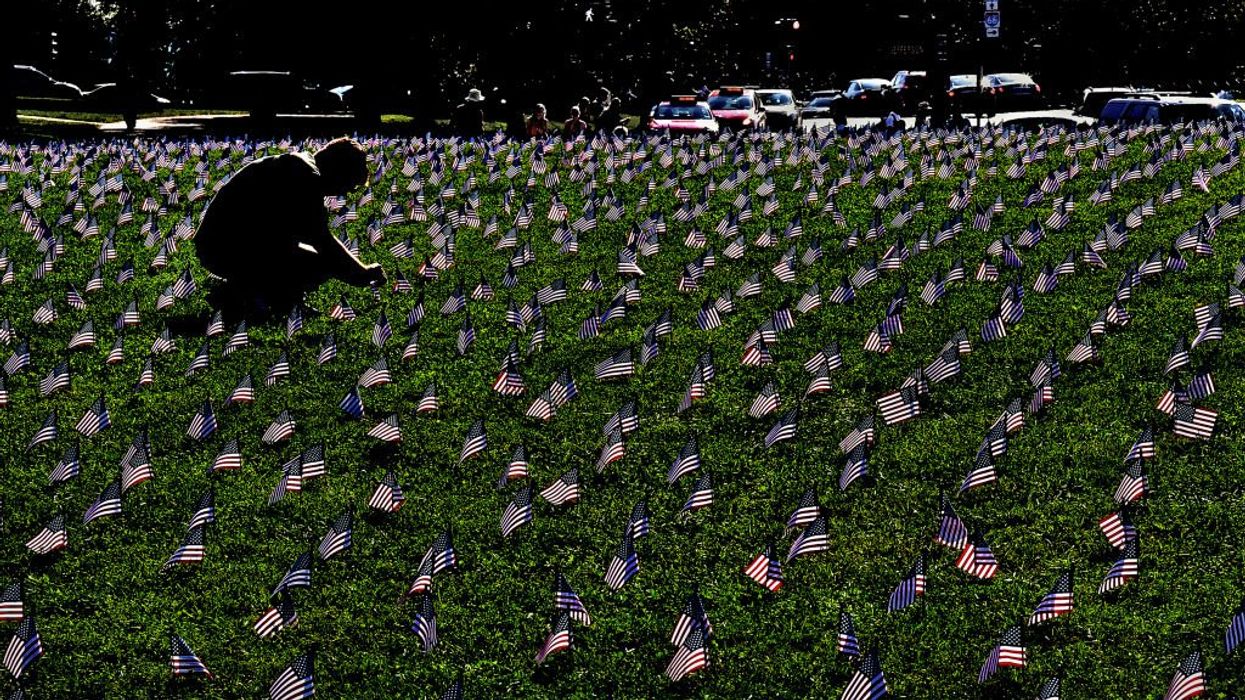
Photo by Michael S. Williamson/The Washington Post via Getty Images

The simple answer lies in a principle the military teaches every new recruit: Ensure no one stands alone.
September is Veteran Suicide Prevention Month, but it's not something most people think about during this time of year. For many Americans, September signals new beginnings. Parents are busy settling their kids into a back-to-school routine, college is starting up again, and suicide prevention and awareness aren't top priorities for most.
However, several members of the Pipe Hitter Foundation board and I have recently lost someone close to us to suicide.
While government programs and policies matter, real change happens when we shift our culture.
The Pipe Hitter Foundation sees this month as an opportunity to bring attention to an issue that has deeply affected us and to make our case to the public about what can be done to combat this tragic epidemic.
A wide range of proposed solutions exists, many of which deserve public consideration. At the same time, the public debate often leaves many veterans, spouses, and patriotic Americans wondering what they can do in their own lives to help. The simple answer lies in a principle they taught us all as recruits: Ensure no one stands alone.
One of the first things I learned in the Navy is that a lone sailor is a vulnerable sailor. The second lesson is learning to work together with the people around you. Sailors, soldiers, Marines, and airmen are stronger as a team. Being part of a team means having each other’s backs. If we don’t work together, things won’t end well for us. Later, I realized those lessons were taught for a reason. If you can’t function as a team on deployment, the consequences can be severe. It’s that simple.
In my experience, after working with veterans for decades since leaving the military, the same principle still applies — for much the same reason. Many of our brothers and sisters in arms carry invisible wounds, and many will struggle with those wounds for the rest of their lives. When the battle follows you home, it can become a matter of life and death. But just like on deployment, none of us can face it alone, nor should anyone have to.
One simple thing everyone can do is reach out and check in with the veterans in their lives. Talk to your friends and listen to them. Even sending a simple text message with helpful resources to fellow vets is a great way to break the ice. No matter our views on politics, when we served, how long we served, or how much time we need to volunteer, we can all pick up the phone and be the friend someone needs when he's struggling. You might never even know you made a difference.
Sadly, almost every veteran has been affected personally by the shock waves of the suicide epidemic. In just the past month, I have lost two friends to suicide. Every veteran I know has a connection or story about how they’ve been impacted by the news that someone they knew, served with, or loved has taken his own life, leaving the rest of us behind to pick up the pieces and try to move forward as best we can.
Access to more Veterans Affairs mental health programs and improved government policies could help. Yes, we should embrace research, advocate better policies, and ensure that programs for veterans are as efficient and accessible as possible.
It’s also important to understand that no single government program or policy will ever reach every corner of the human mind, especially on a problem as large and complex as this epidemic.
What we know for certain is that countless studies highlight the importance of human connection in dealing with problems like depression and post-traumatic stress disorder. We also know that, in today’s world, we are more isolated than ever before and are starving for community and connection.
We can do so much more if we start working together, because we are stronger together.
The biggest impact we can make in addressing the suicide crisis will come from a combination of good policy and the simplest action: checking on each other.
While government programs and policies matter, real change happens when we shift our culture. After years of working in and around government, I’ve learned that the smallest actions often make the greatest difference. Just picking up the phone to check on someone could be the one thing that saves a life. Let’s make that difference today.
Tommy Marquez